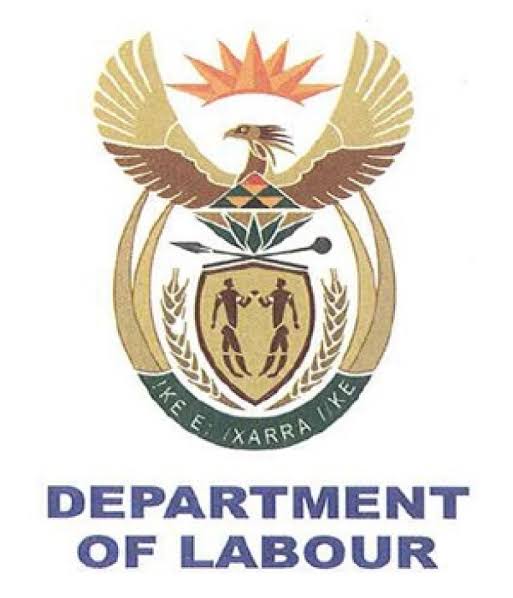Department of Employment and Labour to Recruit 20,000 Labour Inspectors
In a groundbreaking effort to strengthen labour law enforcement and improve workplace conditions across South Africa, the Department of Employment and Labour is initiating a massive recruitment campaign. Minister Nomakhosazana Meth disclosed the department’s intention to employ 20,000 labour inspectors over the next two years. This announcement was made during the NEDLAC Annual Labour School, an event held just outside Pretoria.
This ambitious hiring strategy highlights the department’s dedication to enforcing compliance in workplaces, protecting workers’ rights, and promoting equitable labour practices throughout the nation.
The Crucial Role of Labour Inspectors
Labour inspectors serve as the backbone of fair and ethical workplace operations. Their primary responsibility is to ensure that businesses adhere to South Africa’s labour legislation, such as the Basic Conditions of Employment Act (BCEA). By conducting thorough inspections, these professionals work to shield employees from unfair treatment, exploitation, and unsafe working conditions.
Labour inspectors also provide guidance to employers, ensuring they understand their obligations and responsibilities under the law. This dual approach of enforcement and education helps create an environment where workers’ rights are respected, and employers maintain lawful practices.
Why the Recruitment Drive Matters
The decision to recruit 20,000 labour inspectors comes at a time when the country faces growing challenges in workplace compliance and employment standards. Many industries continue to grapple with issues such as unpaid wages, excessive working hours, unsafe working environments, and lack of access to basic benefits.
By significantly increasing the number of inspectors, the Department of Employment and Labour aims to:
- Enhance Compliance: A larger workforce will allow for more frequent and thorough inspections, ensuring that employers comply with labour laws.
- Improve Worker Protections: Employees will benefit from greater oversight, reducing the risk of exploitation or unsafe working conditions.
- Promote Fair Practices: Businesses that comply with labour laws will gain a competitive edge, fostering a more equitable economy.
- Support Economic Growth: By promoting fair wages and safer workplaces, the initiative contributes to long-term economic stability and growth.
Challenges Facing Labour Law Enforcement
Despite existing efforts, the Department of Employment and Labour has faced significant obstacles in enforcing compliance. These include:
- Limited Resources: Insufficient staffing has historically hindered the department’s ability to conduct inspections at scale.
- High Non-Compliance Rates: Many businesses, particularly in informal sectors, fail to meet basic labour standards.
- Complex Legal Frameworks: Employers and employees often struggle to navigate the intricacies of South Africa’s labour laws.
This recruitment drive is expected to address these challenges by increasing the department’s capacity to enforce laws effectively.
The Recruitment Process
The Department of Employment and Labour has outlined a structured recruitment process to ensure transparency and efficiency. Potential candidates will undergo rigorous screening, training, and evaluation to prepare them for the role of a labour inspector.
- Eligibility Criteria: Applicants must meet specific educational and professional qualifications. These may include a background in labour law, industrial relations, or a related field.
- Training Programs: Selected candidates will participate in comprehensive training programs to familiarize them with labour legislation, inspection techniques, and conflict resolution skills.
- Deployment: Newly appointed inspectors will be strategically deployed to regions with high non-compliance rates to maximize their impact.
Implications for Businesses
The hiring of 20,000 labour inspectors will undoubtedly have a significant impact on businesses across South Africa. Employers will need to ensure full compliance with all labour laws to avoid penalties and legal action. This includes adhering to minimum wage requirements, providing safe working conditions, and respecting employee rights.
Businesses should view this as an opportunity to enhance their workplace standards and build positive relationships with employees. By prioritizing compliance, companies can not only avoid potential fines but also attract and retain talent more effectively.
Broader Impact on the Economy
The recruitment drive aligns with broader national goals to improve working conditions and economic stability. It is expected to:
- Reduce Unemployment: The initiative itself creates thousands of job opportunities, contributing to a decrease in unemployment rates.
- Encourage Investment: A well-regulated labour market attracts local and international investors by fostering a stable and predictable business environment.
- Enhance Social Equity: By addressing exploitation and inequality in the workplace, the program contributes to social justice and economic inclusion.
Minister Meth’s Vision for the Future
Minister Meth has emphasized that the recruitment of 20,000 labour inspectors is just one part of a broader strategy to transform South Africa’s labour landscape. The department is also working to modernize its operations by incorporating digital tools and technology. This includes the development of online platforms to streamline inspections, report violations, and educate employers and workers.
In her address at the NEDLAC Annual Labour School, Minister Meth stated, “Our mission is to build a fair, equitable, and safe working environment for all South Africans. This recruitment drive is a testament to our unwavering commitment to protecting the rights of workers and promoting compliance.”
Conclusion
The Department of Employment and Labour’s plan to hire 20,000 labour inspectors marks a significant step forward in addressing labour law enforcement challenges in South Africa. This initiative not only strengthens the department’s capacity to monitor workplaces but also reinforces the nation’s commitment to protecting workers’ rights and promoting fair practices.
As the recruitment process unfolds, businesses and employees alike are encouraged to engage proactively with the department to ensure a smooth transition toward enhanced compliance and improved working conditions. By fostering a culture of fairness and accountability, South Africa can pave the way for a more equitable and prosperous future.
This bold initiative signals a turning point in the nation’s labour relations landscape, offering hope for better working conditions, fair treatment, and a stronger economy
